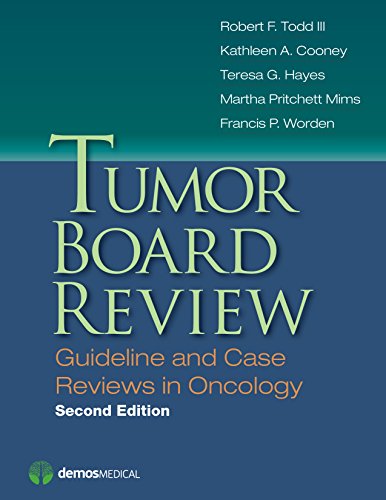

Most ebook files are in PDF format, so you can easily read them using various software such as Foxit Reader or directly on the Google Chrome browser.
Some ebook files are released by publishers in other formats such as .awz, .mobi, .epub, .fb2, etc. You may need to install specific software to read these formats on mobile/PC, such as Calibre.
Please read the tutorial at this link: https://ebookbell.com/faq
We offer FREE conversion to the popular formats you request; however, this may take some time. Therefore, right after payment, please email us, and we will try to provide the service as quickly as possible.
For some exceptional file formats or broken links (if any), please refrain from opening any disputes. Instead, email us first, and we will try to assist within a maximum of 6 hours.
EbookBell Team

0.0
0 reviewsAs everyone in oncology fellowship training knows, there is a huge information gap in this field. Most oncology books are massive and loaded with information by the time the book is published it is outdated. Tumor Board Review is fresh and just out of the oven. I haven't seen any book in oncology like this so far. I think my investment in this book was wise and worth it.
Humaid Al-Shamsi, MB(Hon), BMedSc, MRCP(UK), FRCP, FACP, Assistant Professor, The University of Texas, MD Anderson Cancer Center
Culling the knowledge and expertise of respected oncology specialists, this is a concise yet comprehensive review of all areas of oncology practice for medical oncologists, radiation oncologists, and pathologists both students and practitioners. The second edition of Tumor Board Review has been thoroughly revised to encompass recent scientific advances in assessment and treatment, new clinical guidelines, and new FDA-approved drugs and indications. It also contains approximately 250 multiple-choice questions and answers to assist readers in testing their knowledge, especially those preparing for the MOC exam.
The book features case presentations and evidence-based management discussions that clearly demonstrate how to apply new information in daily practice. In a consistent format, each chapter addresses epidemiology, risk factors, natural history, and pathology of each major organ-specific tumor type an abbreviated display of relevant staging and several tumor board style illustrative patient case studies. This is followed by an evidence-based case discussion, which reinforces current guidelines and explains the rationale for the diagnostic and therapeutic steps taken. Algorithms and decision-tree graphics further illuminate the decision process.
New To The Second Edition of Tumor Board Review: